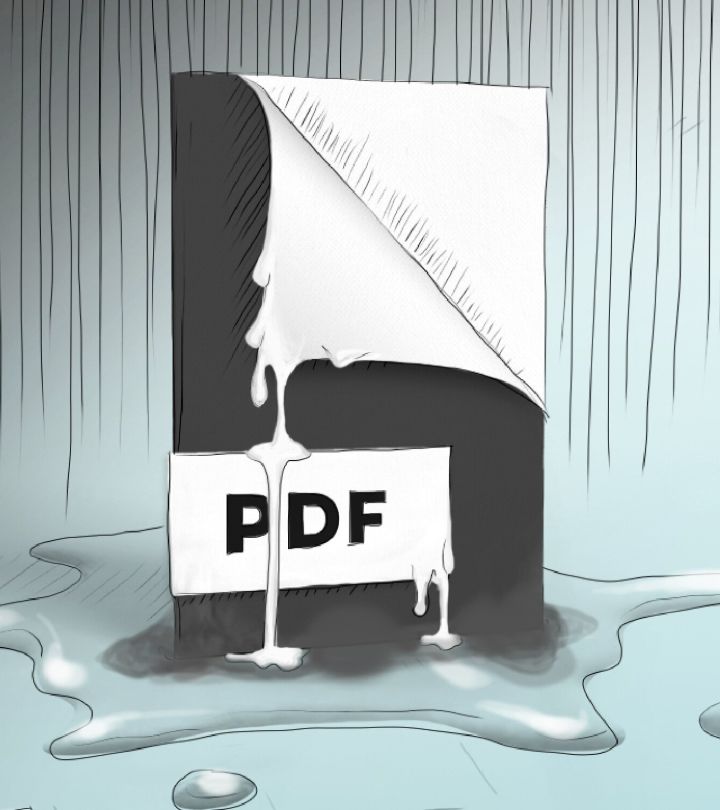Do you work as an employee or as an employer? Perhaps, you are a business owner, right? Well, regardless of which of the three, it is critical for you to be aware that hazards to data breach and mistreatment of your information lie around every corner in every information that you submit, particularly sensitive and valuable data.
Individuals have the right to be properly informed about the reasons why firms acquire, use, or disclose their personal data, allowing them more control over how their data is used. As a result, we have the “Personal Data Protection Act,” which offers protection against the exploitation of individuals’ data by regulating the administration of personal data obtained from any known source and in any form of media.
So, given that, let’s look at what the PDPA means for you and your organization, as well as the benefits it provides for your company. With a glance at some examples, you can assure compliance and avoid being added to the ever-growing list of companies fined by the Personal Data Protection Commission (PDPC) for not doing the right thing. Let’s get started!
Table of Contents
What is PDPA to you and your Company?
Personal data is information on a person who may be identified from it, or from it and other information to which the organization has or will have access. The PDPA is a data protection legislation that lays forth a set of guidelines for the collection, storage, disclosure, and use of personal information.
With today’s advanced technology, it’s understandable that people are anxious about how their personal information is being utilized. There are clearer standards for Singapore enterprises to assess their current data operations now that the PDPA Act is in effect. The implications if the company fails to comply with the PDPA legislation and secure the data of your stakeholders are severe!
The failure to get consent from customers to gather data is a major PDPA requirement that corporations violate. As a result, businesses must now inform customers about how data is acquired. This is especially critical in digital marketing, where the need to capture as much client data as possible can lead to mistakes.
Data is being exchanged at an alarming rate on the internet. There is a lot of Personally Identifiable Information (PII) that we surrender for our digital convenience, from the memberships we have, emails we write, and products we buy online. This PDPA data is in high demand among digital firms since it lays the way for compelling consumer behavioral analytics that may lead to increased consumption of a company’s products or services.
The PDPA assessment service recognizes the need for people’s data to be protected, as well as the necessity for organizations to acquire, use, and disclose personal data for valid and justifiable reasons. The PDPA intends to reinforce your company’s position as a trustworthy center for enterprises by regulating the transfer of personal data across organizations.
The PDPA regulates the handling and use of personal data in both electronic and non-electronic formats, as well as the processing of data from clients, suppliers, third-party service providers, or employees, and requires that all such handling and use be done in strict accordance with the PDPA provisions.
Companies found in violation of the PDPA may face criminal and civil penalties, including imprisonment and/or fines, with each specified crime under the PDPA carrying a penalty of a hefty sum and, in some circumstances, court-ordered punitive damages that may treble the number of fines payable.
Why PDPA is important
In a globalized era, PDPA personal data protection act is linked to the online commerce of products and services. Inadequate or insufficient protection has negative consequences, lowering customer trust.
Furthermore, excessively severe protection might stifle corporate growth and have a negative impact on the economy. Cloud computing, IoT or Internet of Things, and big data analytics are all examples of advances in information and communication technologies (ICT). As a result, data protection based on these technologies is inherently dynamic.
What is the significance of data security? Any company’s data is a valuable asset that it creates, acquires, stores, and exchanges. A company’s financial loss, reputational injury, consumer confidence deterioration, and brand erosion may all be prevented by protecting it from internal or external corruption and unauthorized access.
The term “data security” refers to a collection of procedures and policies that protect sensitive data. Consequently, it is very important to comprehend its relevance. Furthermore, government and industry-imposed data-security rules make it important for a firm to achieve and maintain compliance everywhere it conducts business.
As the number of companies processing personally identifiable information grows, so does the necessity for those companies to secure data security and privacy. It is critical for businesses to develop a strategy regarding with the PDPA assessment service that gives guidelines on how to secure personally identifiable information (PII).
The framework will assist an organization in ensuring that any data kept on its servers is secure and handled appropriately. It will also provide direction and structure to the organization on any modifications that are required, as well as the precise application of such changes.
Data protection is crucial because it protects an organization’s information against fraud, hacking, phishing, and identity theft. Any firm that wishes to operate efficiently must secure the security of its data by developing a data protection strategy.
The necessity of data protection grows in tandem with the amount of data kept and generated. Data leaks and cyberattacks can have catastrophic consequences. Organizations must secure their data proactively and upgrade their security procedures on a regular basis.
Furthermore, preserving and protecting data from various risks and under various conditions is a crucial concept and relevance of data protection. The next article goes into further detail about data protection and its significance.
The Advantages of PDPA Compliance for Your Company
Companies must get an individual’s consent before collecting, using, or disclosing any personal information relating to that individual as a result of new rules. For consumer protection, the Personal Data Protection Act (or PDPA) rests on two key pillars: the Do Not Call (DNC) Registry and general data protection rules. If you own a business, you should be aware of the breadth of this rule and its potential influence on your company’s operations.
Moreover, compliance with the pdpa has evident advantages for an organization, which include preventing a PDPA breach. The ability to develop confidence among stakeholders and avoid large fines in the unlikely case of a breach are two major advantages.
Furthermore, the PDPA gives individuals greater control over their personal data and allows them to monitor how organizations gather, use, and disclose their information. It gives the customer more control because the process of collecting personal data is transparent, and the customer will know the purpose of the data collection and be assured that the personal information collected will only be used for that purpose and not for other purposes not specified or made known to the customer at the time of data collection.
The PDPA compliance also provides you with the benefit of assisting in the development of trust and confidence between your consumers and your company. Consumers may rest easy knowing that they are working with a firm that values personal information and guarantees that it is gathered and maintained in full PDPA compliance.
Customers will also be aware of who they are providing their data to and will be able to determine whether or not it is essential to supply this information to the firm collecting it. Customers may be comfortable that they will only get communications for the purposes for which they signed up, reducing the number of unwanted messages they receive.
How Can You Help With PDPA Compliance?
With the PDPA, you may choose which organizations can collect your data, how it will be utilized, so as whether or not it will be revealed. Regardless of whether the personal informatio is genuine or incorrect, this applies to all electronic and non-electronic personal data. Even you, has a responsibility to safeguard your personal information. You can lessen the danger of your personal data being misused by being careful with how you manage it.
The following are some things to think about considering:
The first step in preparing for PDPA compliance is to conduct a complete gap analysis to analyze your organization’s information collection and usage procedures. At this point, the areas with the highest regulatory risk should be given extra attention.
New regulatory compliance is a work in progress that can present substantial problems, but by concentrating on fundamental principles, important requirements, and the building blocks of data privacy, your organization should be well-prepared to meet the new regulatory standards.
The company must next figure out how much personal information it has access to and where it is stored, even on personal devices; this is to prevent a PDPA breach. This will entail a thorough examination of local and cloud-based operating systems, personal and corporate mobile devices, spreadsheets and databases, paper records, personal files, handwritten notes, and any other locations where data could be found.
Also, PDPA data mapping Thailand assists enterprises in determining where data subjects’ data is stored and facilitating data subject requests. Once you’ve figured out what kind of personal information your company has, you’ll need to figure out why you’re keeping it.
This goal must be “clear, explicit, and justified” according to the PDPA. A goal that is ambiguously stated, such as “fundraising,” might include a wide variety of data uses and so would not fulfill PDPA requirements.
All businesses are required to designate a Data Protection Officer (DPO) and implement a PDPA assessment Privacy Policy. While there is no set timeline for appointing a DPO, it is in your company’s best interests to do so as soon as possible before you begin collecting personal data. This is because if a member of the public reports data protection infringement(s) and your firm does not have a DPO, your company will face further fines. If you don’t have permission to contact customers or prospects, you should check the DNC Registry before doing so.
Companies and businesses are entitled to a limited number of free searches each year, but further searches can be purchased for one credit each. In addition, larger firms may employ a data controller who makes decisions about how data is utilized within the company. This task is often performed by the IT department, but it may also be shared by the Compliance and/or Marketing units.
You must have a personal data inventory map that is tailored to the needs of your firm. To effectively safeguard consumer data, encryption should be applied to emails and stored personal data.
Check out the user guide for the organizations on the DNC registry webpage for the latest up-to-date pricing for credits. If your business has a website, as it almost certainly does, your contact form should have a checkbox or a disclaimer indicating presumed consent and how personal data will be handled.
If you’re utilizing marketing and analytics platforms like Google Analytics, Facebook Pixel, and others, a banner asking visitors to allow cookies should be displayed. These are extra steps that must be done, so speak with one of our specialists for further information and ways of implementation.
To sum it up…
Many company owners may get shivers whenever they can hear the words “Personal Data Protection Act.” Why? Simply because they can see it as something that must be considered in all they do or risk the crippling fines and reputational harm that has already afflicted hundreds of organizations worldwide.
The PDPA was created in today’s increasingly data-driven world to assure appropriate data management by organizations and to provide individuals more control over their personal data. As a result of the new guidelines, companies must get an individual’s consent before collecting, disclosing, or using any personal information about that individual.
If you run a business, you should be aware of the scope of this rule and how it can affect your operations. Indeed, the regulatory law provides several options for both firms and consumers. Data security is a relatively new part of corporate compliance in several sectors, and the standards are expected to evolve. As a result, your company’s compliance status must be assessed regularly.
Do you want to find out more about how could PDPA’s assessment services help you with securing your people’s and business’ important and valuable information? You might as well check our website at https://www.vinarco.com/, and start being knowledgeable and enthusiastic about your own company! What are you waiting for?











